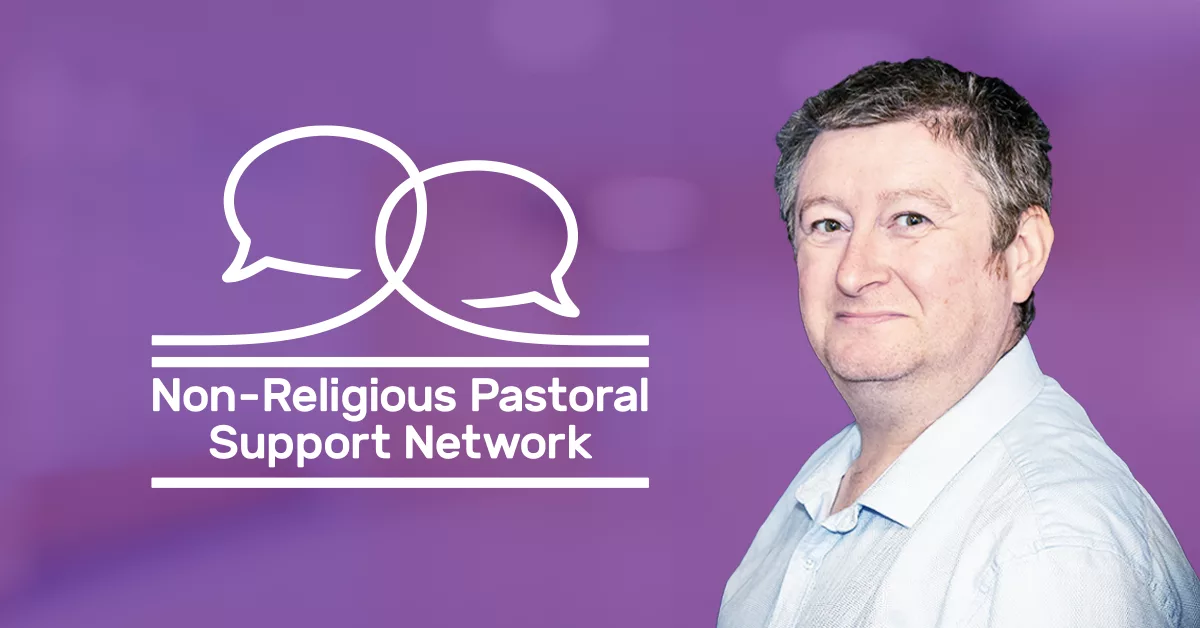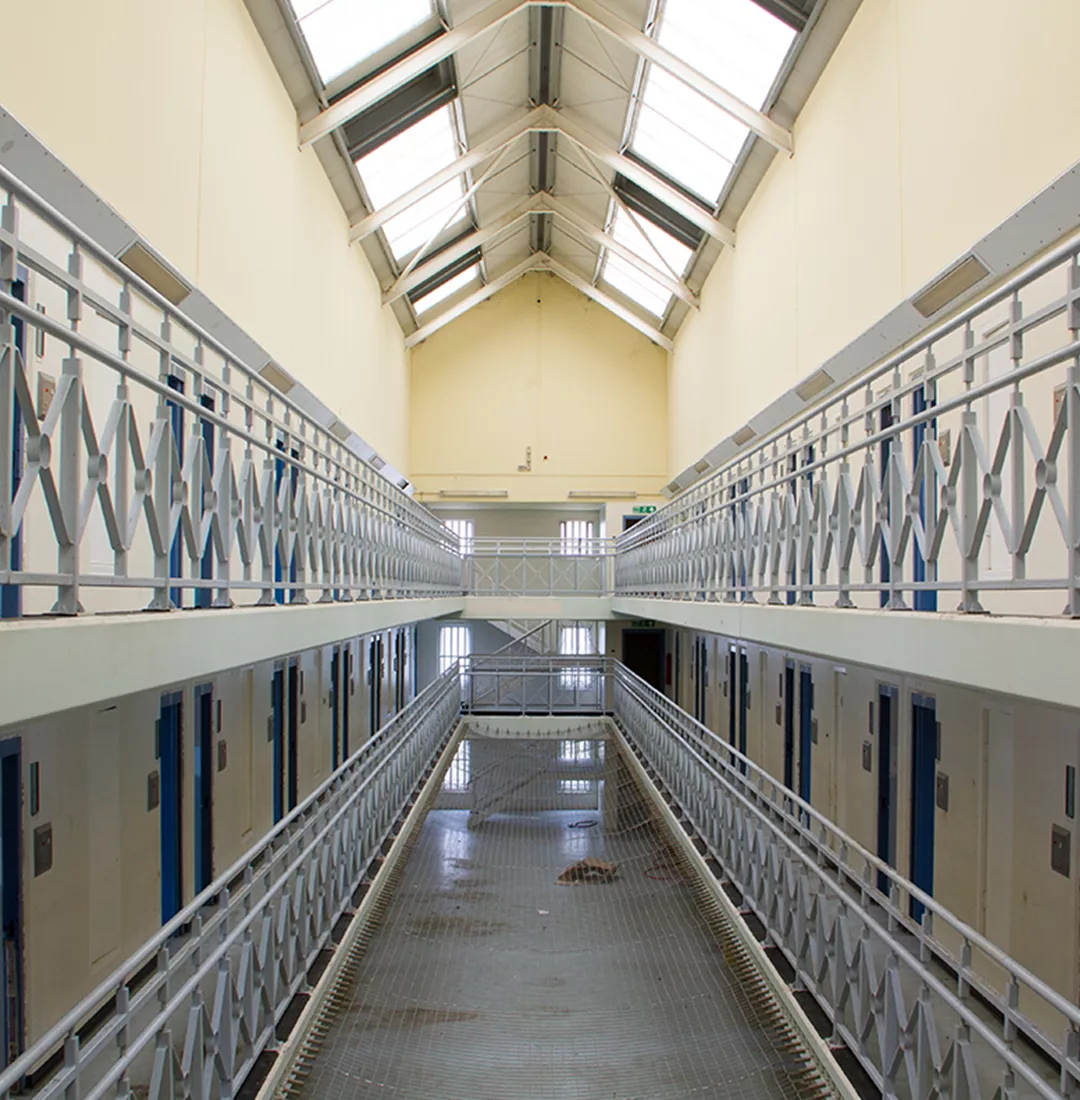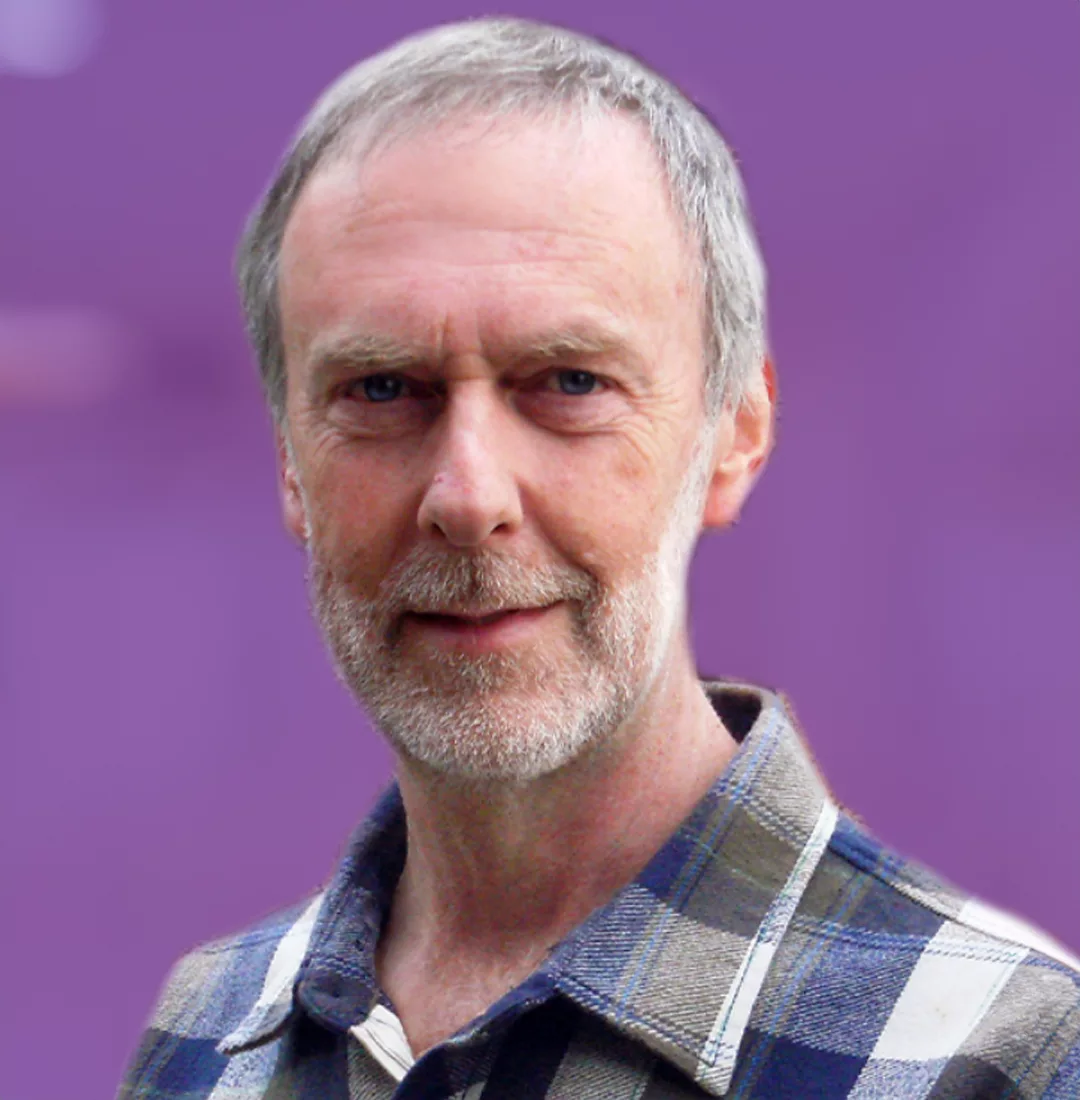
Ronnie Hall is a Non-Religious Pastoral Support Network (NRPSN) practitioner working at HMP Stafford, helping people through life’s most difficult moments. In this interview, he shares what it’s like to support people in one of the most challenging environments in our society — and why offering non-religious pastoral care in prisons is so vital for so many prisoners.
Why is non-religious pastoral care in prisons important?
In everyday life outside prison, both religious and non-religious people can choose who they turn to for support – whether that’s a faith leader, a counsellor, or a therapist.
Prisons are different. In a prison the vast majority of pastoral care is delivered by people of faith. This does not reflect the prison population as a whole, which has a significant non-religious population.
People in prison often have no choice but to seek pastoral support from a person of faith, a chaplain. That’s not to say people of faith can’t support others (they are expected to) and they do it very well. But for someone who is non-religious there is often no choice and that is unfair. It saddens me when I hear of prisoners who are hesitant to ask for support because the only option is to speak to a religious chaplain. Non-religious pastoral care is a massive gap in prison provision and that is why it is important.
Can you tell us about your journey to becoming a non-religious pastoral carer?
I was fortunate that I was already working in prisons, and had done so for many years when I explored being an Non-religious Pastoral Care Network (NRPSN) practitioner. I already knew there was a huge need for people able to express a non-religious worldview to provide pastoral care.
I was already qualified as a therapist through other avenues, but I found the actual process of NRPSN endorsement a challenge! It wasn’t because I didn’t have the knowledge, but it challenged and stretched me to think about my own beliefs and how I could explain them to others, particularly people of faith, without sounding confrontational. The training weekend was outstanding, and I find I am continually learning more.
Can you share with us a particularly memorable experience?
There are so many! My favourite recent encounter was my thrice weekly meetings with a prisoner who came into prison barely able to read and write. He just got his Level 2 English. He’s 84. Another recent one is the work I’m doing with a prisoner who is reconnecting with his family. They have had no contact for more than 20 years. We are working through themes of reconciliation and forgiveness. We are giving space for all involved to speak and to listen. It is emotionally exhausting but incredibly worthwhile.
What does a typical day look like for you?
There isn’t a typical day but there can be a pattern. The day always starts with a chaplaincy meeting to go through what we are doing and what happened the day before. It’s also the opportunity for me as Head of Chaplaincy to feed back anything from the senior manager meeting held first thing in the morning.
After that, prisoners start arriving at the chaplaincy for groups and to have one-to-one meetings with the team. These groups and one-to-ones can be very varied in their content. Some are faith based, some are musical, some people just want a chat, some people are having a mental health crisis and are receiving therapy.
In amongst all this is the other parts of the role. Just yesterday, I had my humanist group for our weekly meeting. I went to the segregation unit and visited our in-patient unit. Later, a clinical psychologist wanted to talk to me about grief support for a prisoner. I was also asked to see a prisoner whose girlfriend had broken up with him in a letter. I had a meeting with the activities manager to arrange for an event to take place (a play on this occasion). A busy day!
What would you say to someone who was interested in becoming a non-religious pastoral carer, but worried about practicing in a prison?
Do it! We need people to work in prisons. The first thing is to know that prison is not like on TV. They get some things right, but they get far more wrong.
But that’s not to say it’s easy. Prisons are a difficult place to be. More than 90% of inmates have mental health issues, many haven’t achieved the most basic levels of literacy and numeracy. They can be addicted to drugs and alcohol and are more likely to lead a chaotic lifestyle.
But, for all that, working with prisoners is the most rewarding thing anyone can do. Working with people who have been written off is a challenge, but that just means the successes are greater. Seeing people turn their lives around is joyful. Seeing families reunited is joyful. Getting letters from former inmates who are doing really well is joyful.
Related stories

Train as a non-religious pastoral carer
Our volunteers and paid members work in the NHS, HMPPS, and the armed forces. We have trained more than 300 pastoral carers, and currently have a presence in 9% of prisons and in 30% of NHS Trusts and growing. Will you join us in making pastoral care more inclusive and equal?
Upcoming training dates:
- London (induction course (Skills course)) – 17 and 18 May 2025
- Leicester (top-up course for NRPSN members seeking paid positions) – 5 and 6 July 2025
- Coventry (induction course (Skills course)) – 19 and 20 July 2025
- Northern Ireland (induction course (Skills course)) – 4 and 5 October 2025
Please read the attached Application Pack, and then complete this online application to register your interest. The application deadline is six weeks before your chosen course, and interviews will be completed shortly after your application is received. If you have any questions please reach out to Clare Elcombe Webber, Director of Humanist Care at clare@humanists.uk.
Notes
Humanists UK is the national charity working on behalf of non-religious people. Powered by 130,000 members and supporters, we advance free thinking and promote humanism to create a tolerant society where rational thinking and kindness prevail. We provide ceremonies, pastoral care, education, and support services benefitting over a million people every year and our campaigns advance humanist thinking on ethical issues, human rights, and equal treatment for all.
The Non-Religious Pastoral Support Network (NRPSN) is the UK’s national network of accredited non-religious volunteers who provide pastoral support across hospitals, prisons, universities, and the armed forces. Membership of the NRPSN is not limited to humanists and is open to all those who hold a non-religious belief system that is consistent with a democratic society.
Read more about non-religious pastoral support.
Read more about the Non-Religious Pastoral Support Network.
Read more about our campaigning on pastoral care and chaplaincy.
Research conducted by YouGov for Humanists UK in 2017 showed widespread demand for the provision of non-religious pastoral care in a variety of settings.



